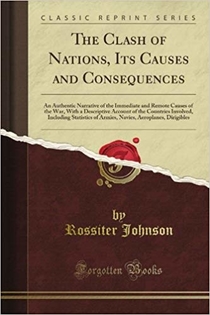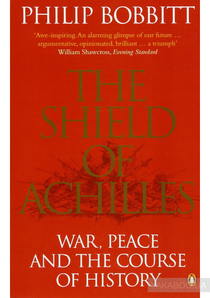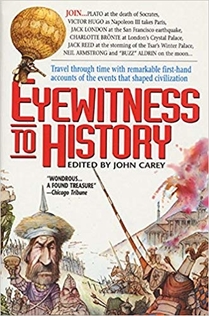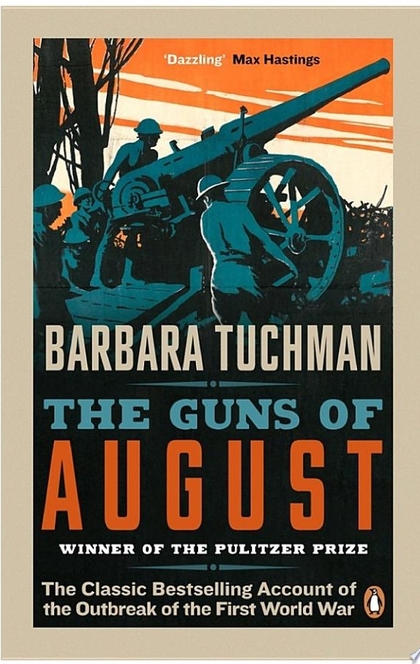
Dan Carlin's Blueprint for Armageddon Book List: 19 Books
Dan Carlin
Take a look at Dan Carlin's Blueprint for Armageddon suggested reading on the First World War: 19 Books
See all
1
like
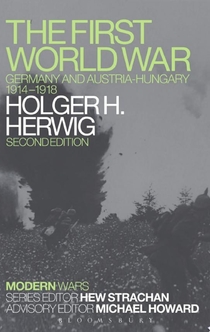
The First World War
The Great War toppled four empires, cost the world 24 million dead, and sowed the seeds of another worldwide conflict 20 years later. This is the only book in the English language to offer comprehensive coverage of how Germany and Austria-Hungary, two of the key belligerents, conducted the war and what defeat meant to them. This new edition has been thoroughly updated throughout, including new developments in the historiography and, in particular, addressing new work on the cultural history of the war. This edition also includes: - New material on the domestic front, covering Austria-Hungary's internal political frictions and ethnic fissures - More on Austria-Hungary and Germany's position within the wider geopolitical framework - Increased coverage of the Eastern front The First World War: Germany and Austria-Hungary, 1914-1918 offers an authoritative and well-researched survey of the role of the Central powers that will be an invaluable text for all those studying the First World War and the development of modern warfare.
See all
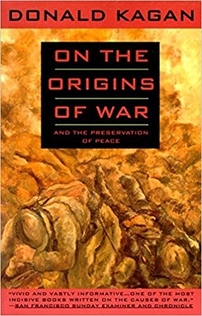
On the Origins of War and the Preservation of Peace
By lucidly revealing the common threads that connect the ancient confrontations between Athens and Sparta and between Rome and Carthage with the two calamitous world wars of the 20th century and the Cuban Missile Crisis, Kagan reveals new insights into the nature of war--and peace--that are vitally important and often surprising.
See all
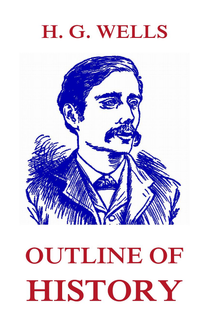
Outline of History
No book is provoking a more animated discussion among students of the social sciences at the present time than H. G. Wells' Outline of History. The author's task, as he himself sets it, is to tell, "truly and clearly, in one continuous narrative, the whole story of life and mankind so far as it is known today." But while these two volumes are plainly for the general reader rather than for the special student of history, it does not follow that they contain nothing beyond an endless parade of names and dates. Their chief value, indeed, is in the author's interpretation of what he writes about. Events are appraised and men are weighed in the balance as he goes along. Historians in general will not agree with some of these appraisals, nor will they credit Mr. Wells with an approach to infallibility in his judgment of the men who flit across his pages; but his estimates of the relative value of facts and forces can scarcely be brushed aside because they do not command general indorsement. On some matters, unhappily, Mr. Wells has allowed his iconoclastic proclivities to run away with him. Napoleon I, for example, cannot be disposed of as a second-grade "pestilence" because "he killed fewer people than the influenza epidemic of 1918" (II, p. 384); nor will the world believe, so long as it retains its senses, that Napoleon III was " a much more intelligent man" than his uncle (II, p. 438). Even the pinchbeck himself would have rebuked this insinuation. But when all is said, these two stout volumes embody a remarkable achievement. They contain astonishingly few historical inaccuracies of the customary type. The author's advisers, and a competent galaxy of scholars they are, have kept him clear of the pitfalls. The style is terse and forceful. Mr. Wells certainly has the gift of cogent exposition.
See all

The Art of War in the Western World
"The magnum opus of one of America's most respected military historians, "The Art of War in the Western World" has earned its place as the standard work on how the three major operational components of war - tactics, logistics, and strategy - have evolved and changed over time. This monumental work encompasses 2,500 years of military history, from infantry combat in ancient Greece through the dissolution of the Roman Empire to the Thirty Years' War and from the Napoleonic campaigns through World War II, which Jones sees as the culmination of modern warfare, to the Israeli-Egyptian War of 1973".
See all
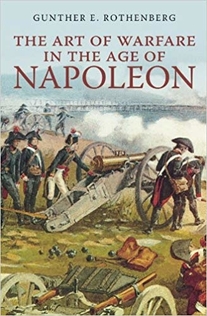
The Art of Warfare in the Age of Napoleon
"... a most illuminating and readable general survey.... This book is well organized, well produced, and well written. It belongs among the ten most useful books on this period to the historian and... to the general reader." -- American Historical Review"This splendid volume fills a gap in the vast outpouring of literature on the military aspects of the era of the French Revolution and Napoleon by combining a description of the major changes and trends of warfare with a comparative discussion of the French military establishment and the armies of its major opponents.... As another contribution to 'synthetic' history, it is a very successful exercise." -- Military Affairs"... a splendid little study which will be of considerable interest both to the general student and specialist.... [it] fills a definite need for a survey of the military developments of the period and one can learn a great deal from a close reading of it." -- History"A clear, lively, and well-produced survey that relies upon the best scholarship of several languages.... " -- Library JournalIn a comprehensive study of a crucial era in warfare -- from the last decades of the ancient régime to Napoleon's defeat at Waterloo -- Rothenberg describes the organization, training methods, equipment, tactics, and strategy of France and its adversaries. He also explores staff systems, logistics, fortifications, medical services, and insurgency and counterinsurgency.
See all
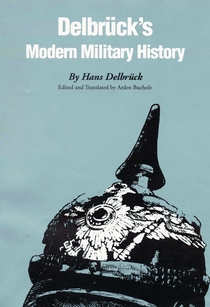
Delbrück's Modern Military History
The period 1866–1920 saw the rise and ruin of imperial Germany, and Hans Delbrück (1848–1929) reported on the events of those years from a uniquely privileged position. A professor of history at the University of Berlin, editor of the Prussian Annals—the most famous journal of political commentary of his day—and a delegate to the Paris Peace Conference, he also moved among political, cultural, and military elites. Delbrück pioneered the techniques of modern military history, studying tactics and technology as well as the social, political, and economic context of military operations. His four-volume History of the Art of War is a classic of German and military history. This volume reveals the tension between Delbrück’s patriotism and his scholarship, which helped him to recognize German military failings. The twenty-four readings, comprising letters written to his mother while he served in the Franco-Prussian War of 1870 and essays, reviews, commentaries, and speeches on military figures, historians, and events through World War I, show his talents as a historian and political commentator. Arden Bucholz’s introduction and headnotes illuminate the context of Delbrück’s life and work.
See all

War
A new and revised edition of Dyer’s classic book, widely regarded as one of the most compelling analyses of the history of armed conflict.“War is part of our history, but it is not in at all the same sense part of our prehistory. It is one of the innovations that occurred between nine and eleven thousand years ago when the first civilized societies were coming into being. What has been invented can be changed; war is not in our genes.”With this provocative statement, Gwynne Dyer launches his brilliant discussion of the history and nature of war. He traces the growth of organized warfare through history, showing conclusively that the basic tenet has remained unchanged — war is an act of mass violence applied against an enemy so that he will do what you want him to do. The only real change has been technological, permitting us to make war on a mass scale.At the height of the Cold War, just such a global conflagration seemed almost inevitable. But the collapse of the Iron Curtain and the ensuing political changes have forced a re-examination of the accepted fundamentals of history. Will open access to the channels of mass communication create enough shared values that we can move beyond mass warfare? Is the threat of terrorism a red herring designed to preserve the military status quo? Are our traditional military and administrative hierarchical structures still relevant?Now, more than ever in our post–September 11 world, we need Gwynne Dyer’s expertise to understand the greatest and most human drama — the act of war.Excerpt from WarThe Siamese twins, army and state, have never been separated since they were born some eight or nine thousand years ago — and most of the time the state is the stronger of the twins. Armies exist to serve the interests of the state that owns them and their legitimacy comes solely from the fact that they belong to states; similar groups of armed men, if self-employed, are generally known as rebels or bandits. This is the context in which warfare, as opposed to casual and illegitimate violence, must be seen: it is something states do, and have always done, because they believe it serves their interest.
See all

The Great War
World War I altered the landscape of the modern world in every conceivable arena. Millions died; empires collapsed; new ideologies and political movements arose; poison gas, warplanes, tanks, submarines, and other technologies appeared. "Total war" emerged as a grim, mature reality. In The Great War, Peter Hart provides a masterful combat history of this global conflict. Focusing on the decisive engagements, Hart explores the immense challenges faced by the commanders on all sides. He surveys the belligerent nations, analyzing their strengths, weaknesses, and strategic imperatives. Russia, for example, was obsessed with securing an exit from the Black Sea, while France--having lost to Prussia in 1871, before Germany united--constructed a network of defensive alliances, even as it held a grudge over the loss of Alsace-Lorraine. Hart offers deft portraits of the commanders, the prewar plans, and the unexpected obstacles and setbacks that upended the initial operations. He concentrates on the Western and Eastern fronts, but also pays attention to important peripheral events, such as the war at sea, the fighting in Mesopotamia and Palestine, and the Italian front. In the Great War, for the first time, warfare ceased to consist of armies hunting for each other across the landscape and meeting in brief, decisive battles; now continuous lines stretched from the Channel to the Alps, from the Alps to the Adriatic. Hart also examines the changing weapons and tactics, from pioneering British tanks to Germany's devastating infiltration techniques. In the final analysis, Hart argues that France provided the bulwark of the forces and determination that defeated the Central Powers, but Britain tipped the balance, with the crucial help of American intervention. Coming just in time for the centennial of 1914, The Great War provides the definitive one-volume account of the twentieth century's defining event.
See all

Cataclysm
David Stevenson's widely acclaimed history of World War I changes forever our understanding of that pivotal conflict. Countering the commonplace assumption that politicians lost control of events, and that the war, once it began, quickly became an unstoppable machine, Stevenson contends that politicians deliberately took risks that led to war in July 1914. Far from being overwhelmed by the unprecedented scale and brutality of the bloodshed, political leaders on both sides remained very much in control of events throughout. According to Stevenson, the disturbing reality is that the course of the war was the result of conscious choices—including the continued acceptance of astronomical casualties. In fluid prose, Stevenson has written a definitive history of the man-made catastrophe that left lasting scars on the twentieth century. Cataclysm is a truly international history, incorporating new research on previously undisclosed records from governments in Europe and across the world. From the complex network of secret treaties and alliances that eventually drew all of Europe into the war, through the bloodbaths of Gallipoli and the Somme, to the arrival of American forces, and the massive political, economic, and cultural shifts the conflict left in its wake, Cataclysm is a major revision of World War I history.
See all
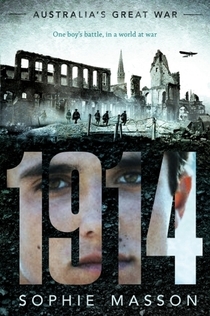
1914
Every book tells a story . . .And the 70 titles in the Pocket Penguins series are emblematic of the renowned breadth and quality that formed part of the original Penguin vision in 1935 and that continue to define our publishing today. Together, they tell one version of the unique story of Penguin Books. One of Penguin's bestselling non-fiction authors, Niall Ferguson has been hailed as the most brilliant historian of his generation for his fresh, provocative and controversial approach to subjects ranging from money to empires. 1914- Why the World Went to Warhas been specially adapted from Ferguson's bestselling The Pity of War (1998). It is a radical reassessment of how the world hurtled into catastrophe in 1914.
See all
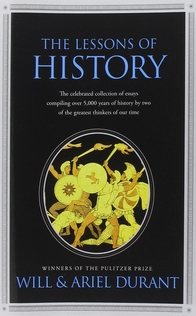
The Lessons of History
A concise survey of the culture and civilization of mankind, The Lessons of History is the result of a lifetime of research from Pulitzer Prize–winning historians Will and Ariel Durant.With their accessible compendium of philosophy and social progress, the Durants take us on a journey through history, exploring the possibilities and limitations of humanity over time. Juxtaposing the great lives, ideas, and accomplishments with cycles of war and conquest, the Durants reveal the towering themes of history and give meaning to our own.
See all
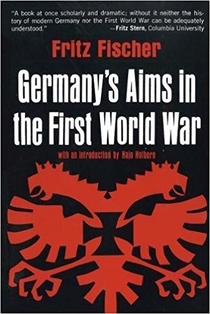
Germany's Aims in the First World War
Professor Fischer's great work is possibly the most important book of any sort, probably the most important historical book, certainly the most controversial book, to come out of Germany since the war.

The First World War
The definitive account of the Great War and a national bestseller from eminent military historian John Keegan2018 marks the centenary of the First World War – the war that created the modern world. It destroyed a century of relative peace and prosperity and saw a continent at the height of its success descend into slaughter. It unleashed both the demons of the twentieth century - political hatred, military destruction and mass death - and the ideas which continue to shape our world today: modernism in the arts, new approaches to psychology and medicine, and radical ideas about economics and society.By the end of the war, three great empires – the Austro-Hungarian, the Russian and the Ottoman – had collapsed. But as Keegan expertly shows, the devastation extended over the entirety over Europe and still profoundly informs the politics and culture of the continent today. Pertinent, authoritative and gripping, this panoramic account of WW1 is regarded as a world history classic. ‘The best and most approachable introduction to the war’ Guardian‘Nobody describes a battle as Keegan does, vividly relating the unfolding events to the contours of the field of combat... This book is a kind of war memorial. As first-hand memory fades, The First World War honours the dead as only true history can’ Sunday Times
See all

A World Undone
NEW YORK TIMES BESTSELLER • Drawing on exhaustive research, this intimate account details how World War I reduced Europe’s mightiest empires to rubble, killed twenty million people, and cracked the foundations of our modern world“Thundering, magnificent . . . [A World Undone] is a book of true greatness that prompts moments of sheer joy and pleasure. . . . It will earn generations of admirers.”—The Washington TimesOn a summer day in 1914, a nineteen-year-old Serbian nationalist gunned down Archduke Franz Ferdinand in Sarajevo. While the world slumbered, monumental forces were shaken. In less than a month, a combination of ambition, deceit, fear, jealousy, missed opportunities, and miscalculation sent Austro-Hungarian troops marching into Serbia, German troops streaming toward Paris, and a vast Russian army into war, with England as its ally. As crowds cheered their armies on, no one could guess what lay ahead in the First World War: four long years of slaughter, physical and moral exhaustion, and the near collapse of a civilization that until 1914 had dominated the globe.Praise for A World Undone “Meyer’s sketches of the British Cabinet, the Russian Empire, the aging Austro-Hungarian Empire . . . are lifelike and plausible. His account of the tragic folly of Gallipoli is masterful. . . . [A World Undone] has an instructive value that can scarcely be measured”—Los Angeles Times “An original and very readable account of one of the most significant and often misunderstood events of the last century.”—Steve Gillon, resident historian, The History Channel
See all

The Pity of War
The controversial revisionist history of World War I that made Niall Ferguson's name The First World War killed around eight million men and bled Europe dry. More than any other event, it made the twentieth century. In this boldly conceived book and provocative, aimed to appeal not only to students but also to the general reader, Niall Ferguson explodes many of the myths surrounding the war. Niall Ferguson is Herzog Professor of Financial History at the Stern School of Business, New York University, Visiting Professor of History, Oxford University and Senior Research Fellow, Jesus College, Oxford. His other books for Penguin include Empire, The Cash Nexus, Colossus, The War of the World, Virtual History, High Financier and Civilization.
See all

The Guns of August
Barbara Tuchman's The Guns of August is a spellbinding history of the fateful first month when Britain went to war.War pressed against every frontier. Suddenly dismayed, governments struggled and twisted to fend it off. It was no use . . .Barbara Tuchman's universally acclaimed, Pulitzer prize-winning account of how the first thirty days of battle determined the course of the First World War is to this day revered as the classic account of the conflict's opening. From the precipitous plunge into war and the brutal and bloody battles of August 1914, Tuchman shows how events were propelled by a horrific logic which swept all sides up in its unstoppable momentum.'Dazzling' Max Hastings'Magnificent' Guardian'Fascinating, splendid, glittering. One of the finest works of history' New York Times'A brilliant achievement' Sunday TelegraphBarbara Tuchman achieved prominence as a historian with The Zimmerman Telegram and international fame with the Pulitzer-Prize winning The Guns of August. She is also the author of The Proud Tower, Stilwell and the American Experience in China (also awarded the Pulitzer Prize), A Distant Mirror and The March of Folly. She died in 1989. The Proud Tower and The Zimmerman Telegram are published by Penguin.
See all

